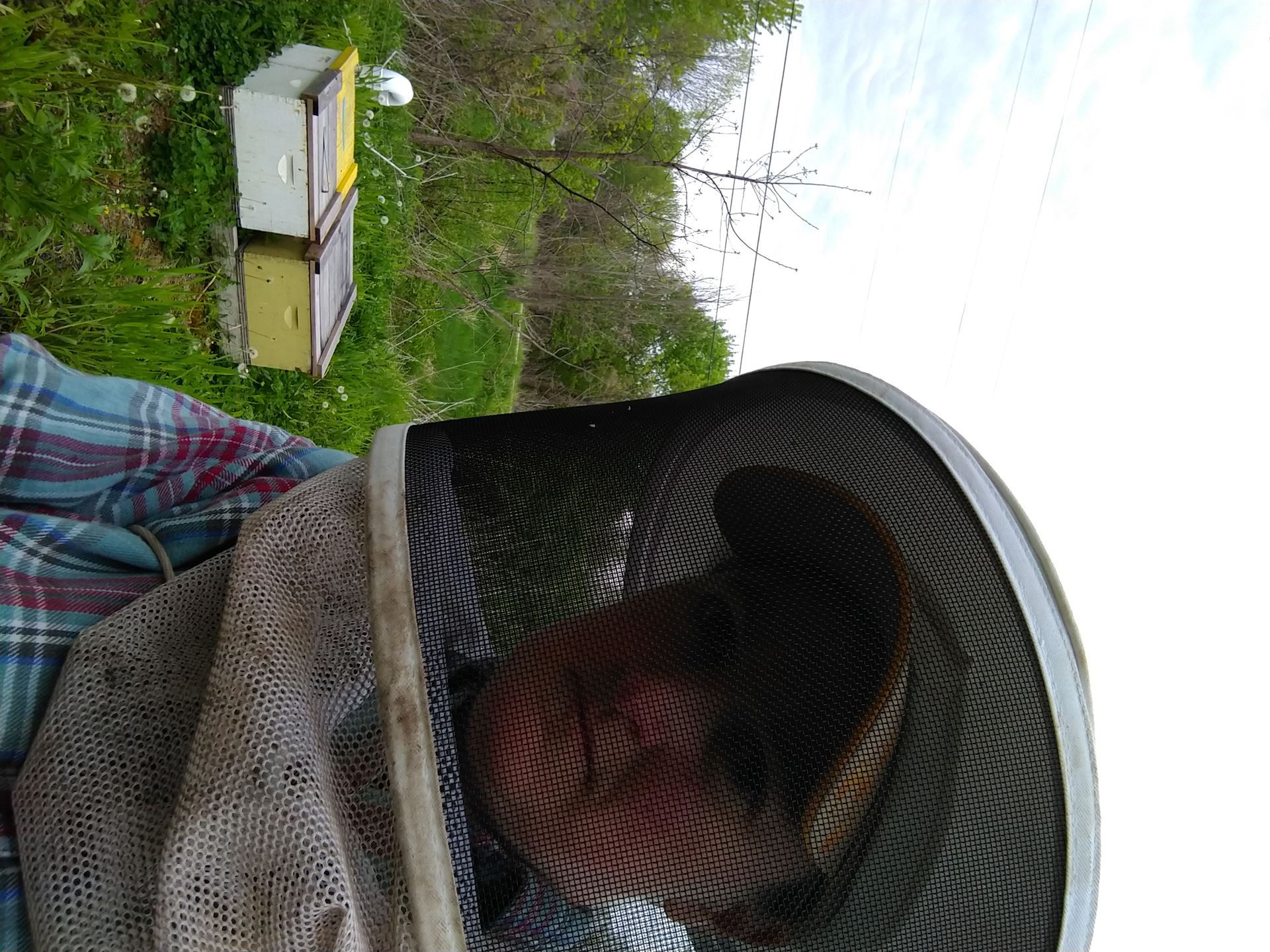 It’s February – solidly in the middle of off-season for bees in Iowa. The honeybees that remain in Iowa are tucked in for the winter, clustered together and slowly flexing their wings to keep their hive warm, each taking their turn rotating to the outside of the cluster to allow others further inside the cluster to warm up. They’re slowly working their way through the honey stores they put up for the winter, just waiting for a warm enough day to go out for a cleansing flight, to catch a bit of sunlight, and maybe to find an early bud from which to source some nectar or pollen.
It’s February – solidly in the middle of off-season for bees in Iowa. The honeybees that remain in Iowa are tucked in for the winter, clustered together and slowly flexing their wings to keep their hive warm, each taking their turn rotating to the outside of the cluster to allow others further inside the cluster to warm up. They’re slowly working their way through the honey stores they put up for the winter, just waiting for a warm enough day to go out for a cleansing flight, to catch a bit of sunlight, and maybe to find an early bud from which to source some nectar or pollen.
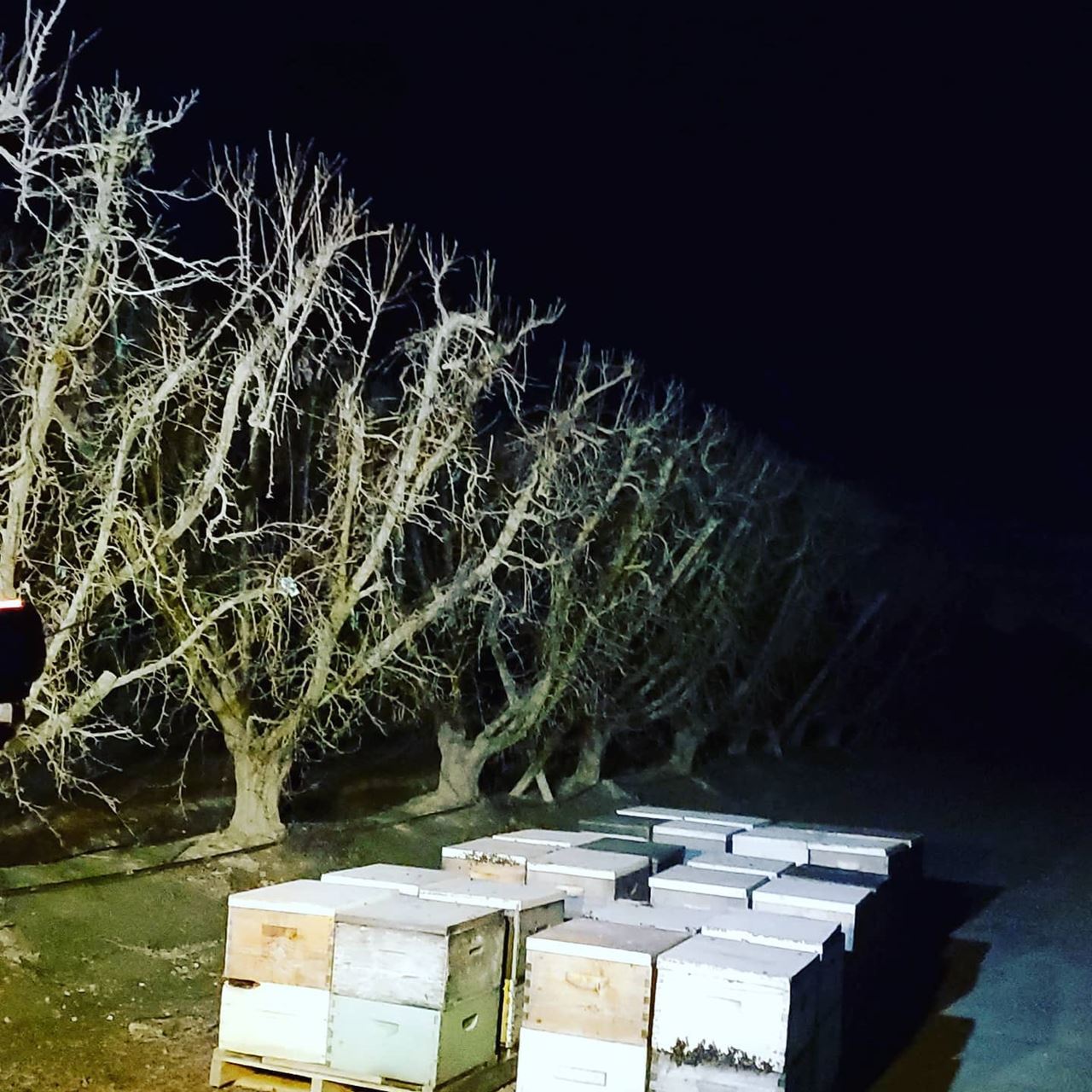
My bees don’t get that slow season. As other beekeepers are preparing their hives to over-winter in sometimes sub-zero temperatures, my husband is preparing our bees for a trip out west. Our bees, during the typical off-season, gather with other hives from all across the country in California to pollinate almonds! Instead of being tucked in for the winter, they’re busy going from one blossom to the next in acres of almond orchards. And instead of just beginning to stretch their wings in April, they’re coming back to Iowa full of the nectar and pollen they collected, just bursting at the seams and ready to grow.
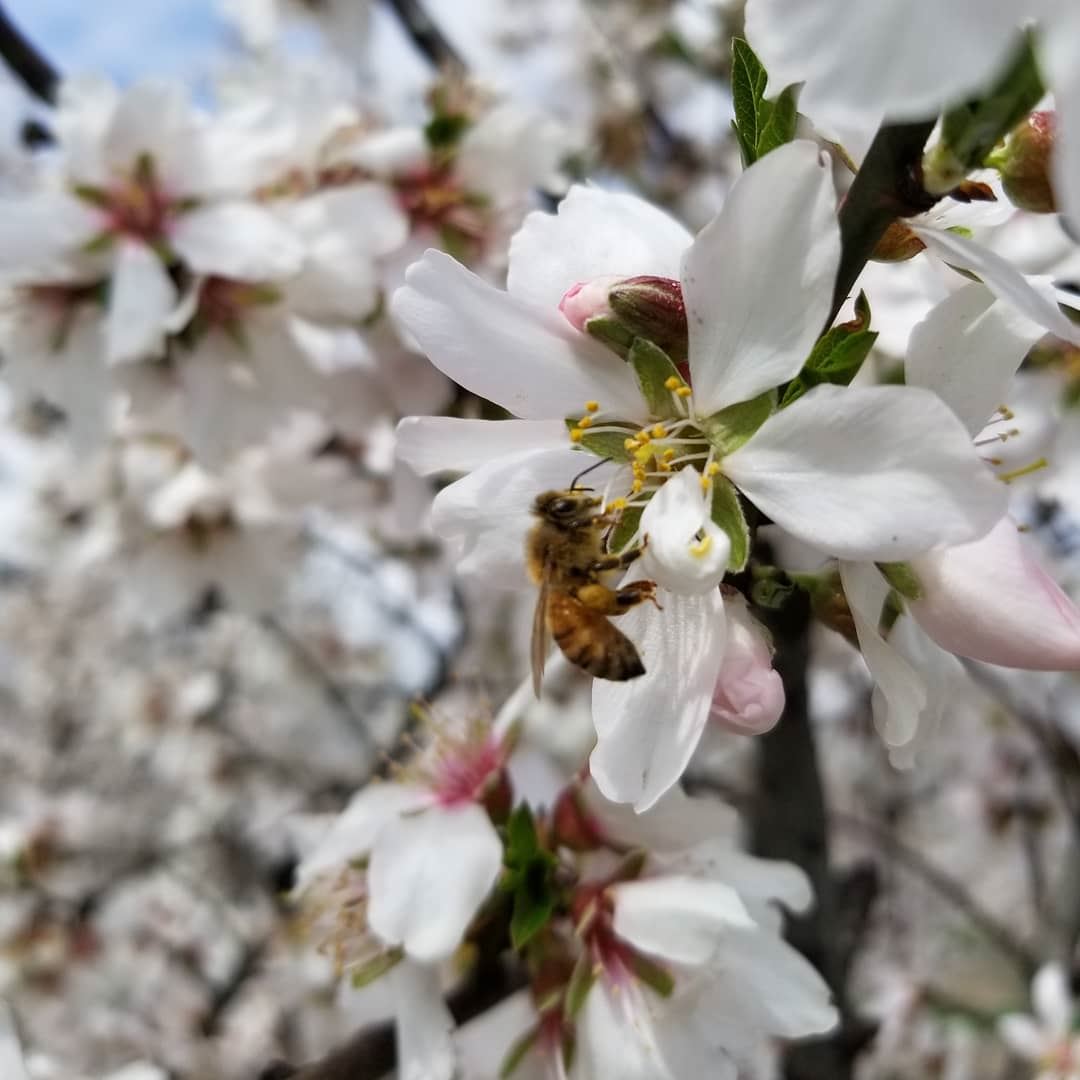 That gathering of honeybees reminds me some of the UMCRM National Gathering that was held this fall in Pennsylvania. Fall is typically our off-season, so we gather with our friends from all across the country to work on a shared mission: to resource, advocate, inspire, and network to enhance the effectiveness and sustainability of camp and retreat ministries! And when we return home, we’re bursting with ideas to grow our camps and make them better and stronger to serve our campers.
That gathering of honeybees reminds me some of the UMCRM National Gathering that was held this fall in Pennsylvania. Fall is typically our off-season, so we gather with our friends from all across the country to work on a shared mission: to resource, advocate, inspire, and network to enhance the effectiveness and sustainability of camp and retreat ministries! And when we return home, we’re bursting with ideas to grow our camps and make them better and stronger to serve our campers.
If almond farmers didn’t bring in bees from all around the country to pollinate their trees, the world would sadly have many fewer almonds. And if we didn’t all come together through UMCRM, we wouldn’t be as easily able to share ideas, learn from one another’s successes and failures, and may not bear as much fruit.
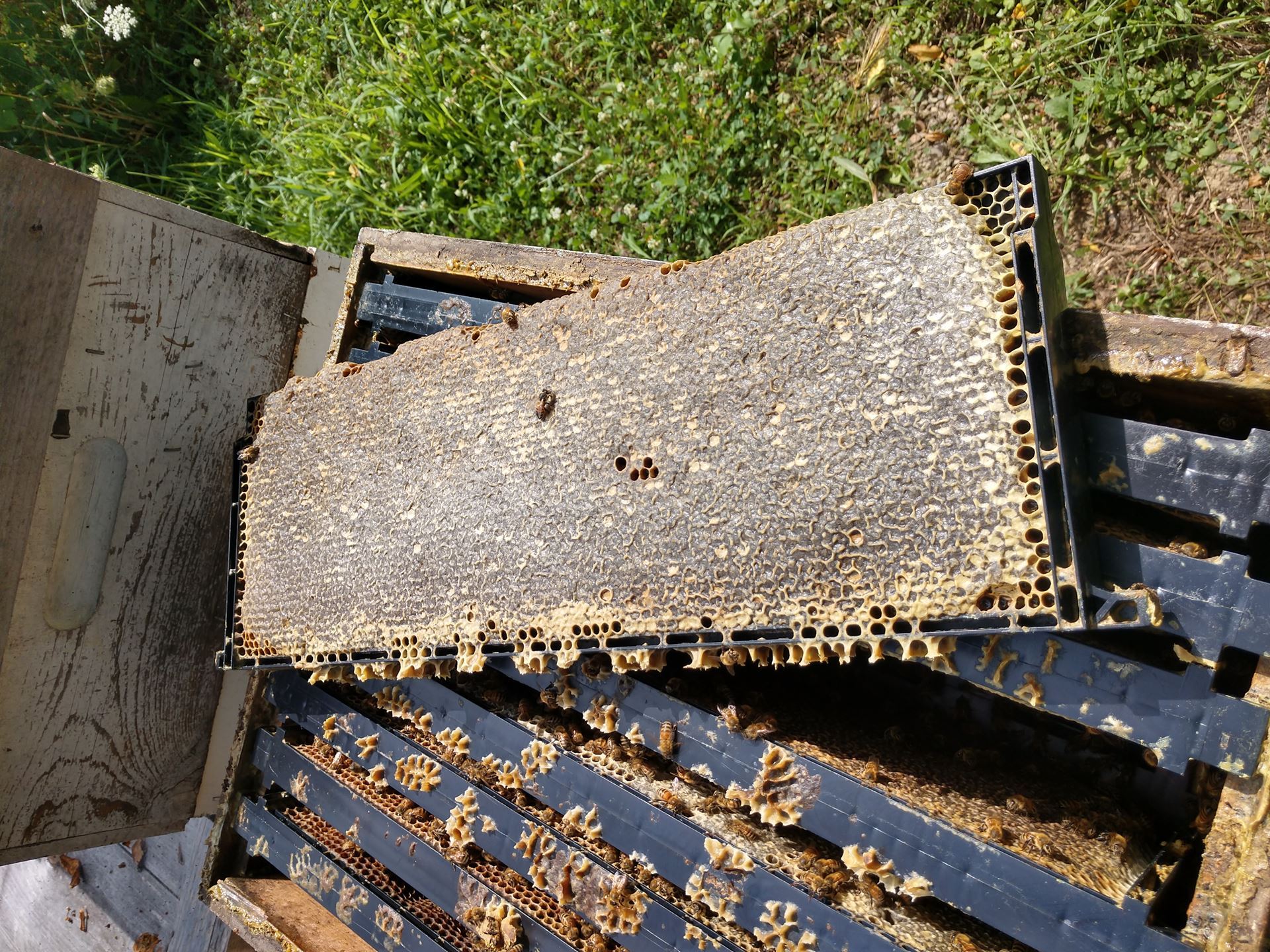 Our individual camps are similar to individual beehives – each one can stand alone and function on its own. It will bear fruit, or rather, honey, without interacting with other hives. But the reality is that we do interact and help each other to grow. When a hive is looking weak, a beekeeper can go into another hive and take a few frames of brood (soon-to-hatch bees) and move them into the weaker hive to help it grow. And so it is with our association: when our camp and retreat ministries need new and refreshing ideas, we can visit our camp friends and bring revitalized ideas back into our own spaces.
Our individual camps are similar to individual beehives – each one can stand alone and function on its own. It will bear fruit, or rather, honey, without interacting with other hives. But the reality is that we do interact and help each other to grow. When a hive is looking weak, a beekeeper can go into another hive and take a few frames of brood (soon-to-hatch bees) and move them into the weaker hive to help it grow. And so it is with our association: when our camp and retreat ministries need new and refreshing ideas, we can visit our camp friends and bring revitalized ideas back into our own spaces.
Each hive has one queen. That queen is responsible for laying up to 1500 eggs per day in the summer while the nectar is flowing. If the queen is damaged or dies, the entire colony may collapse. But as long as the hive is queenright (meaning the queen is present), that one bee can keep the hive happily humming along all year long. Come fall, the colony begins to pare down the number of bees in the hive. Fewer are needed to get through a long, cold winter. But those that remain must be hearty to begin to re-grow the hive in the spring.
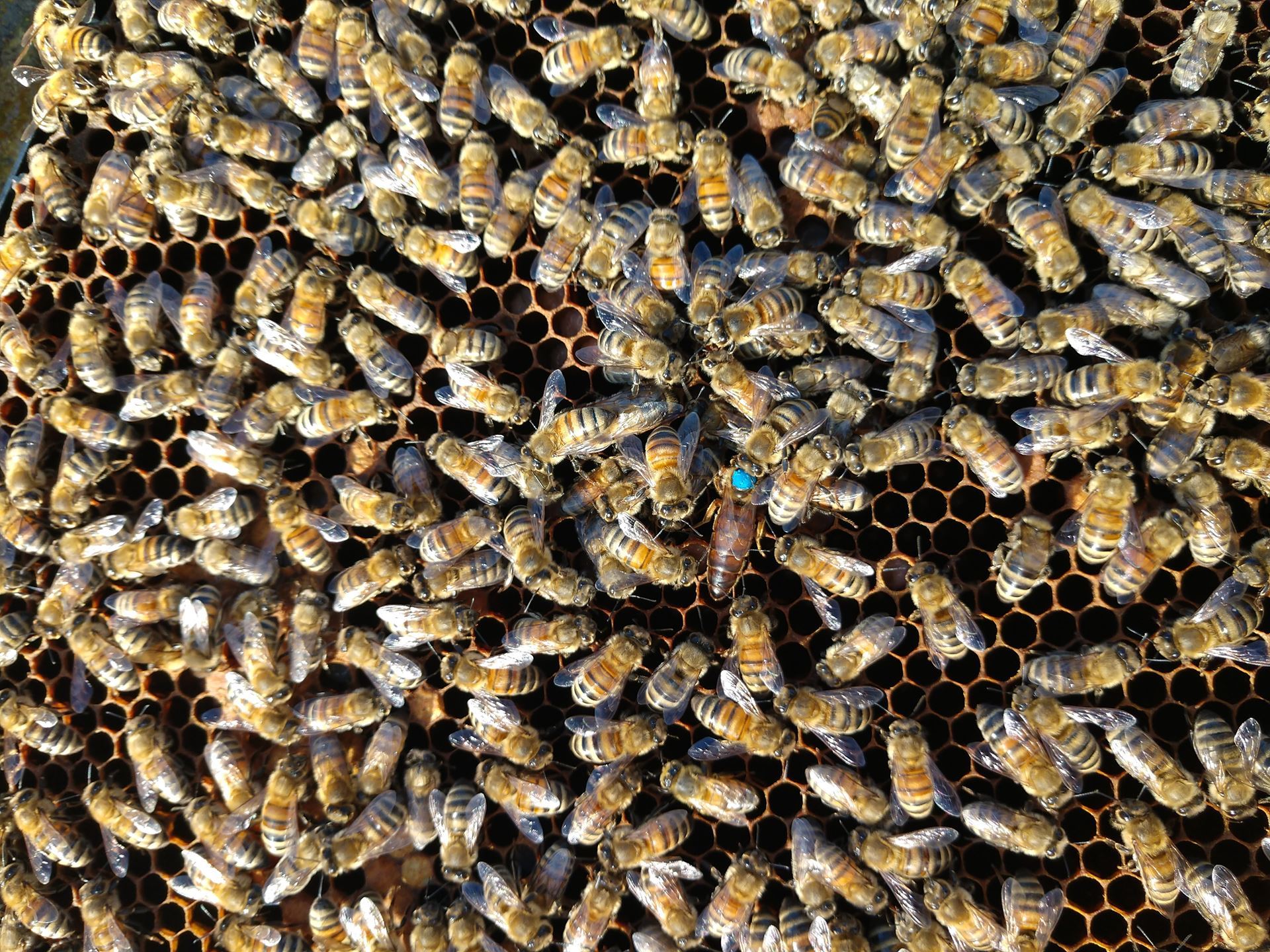 The queen is like the leadership of your camp – maybe not just the director, but the whole team. It’s important to have healthy leadership to keep camp growing and thriving. The core leadership team is much like the smaller cluster of bees that takes the queen and hive into the wintertime. They’ll spend all of the off-season diligently working through the projects that need to be accomplished, so that when spring rolls around, they’re ready for summer staff to arrive and campers to be on site.
The queen is like the leadership of your camp – maybe not just the director, but the whole team. It’s important to have healthy leadership to keep camp growing and thriving. The core leadership team is much like the smaller cluster of bees that takes the queen and hive into the wintertime. They’ll spend all of the off-season diligently working through the projects that need to be accomplished, so that when spring rolls around, they’re ready for summer staff to arrive and campers to be on site.
Now about those 1500 eggs the queen lays each day – nearly all of those are the female worker bees. In the summertime, those bees live only about 45 days. They literally work themselves to death. Each bee will bring in approximately 1/12 of a teaspoon of honey in her entire life! The worker bees will go through many phases in their short lives: janitor, nurse, construction worker, undertaker, security guard, and breadwinner. Do you ever see your campers go through many phases in the short time that they’re with you? Perhaps going from shy to homesick to building confidence to not wanting to leave? We see similar types of campers each week as the camp population turns over. As the summer goes on, our skills refine and grow to better meet the needs of our campers.
I believe our association and our camps are all just as sweet as honey! May we all come to appreciate the beauty and blessing of these wonderful insects God gave us. We can learn a lesson or two from these sweet creatures.

Shannon Bardole-Foley has been camp registrar and fundraising assistant for Iowa United Methodist Camps for 4 years. She also keeps Russian honeybees with her husband, Jason, who produces queen bees for a living.



